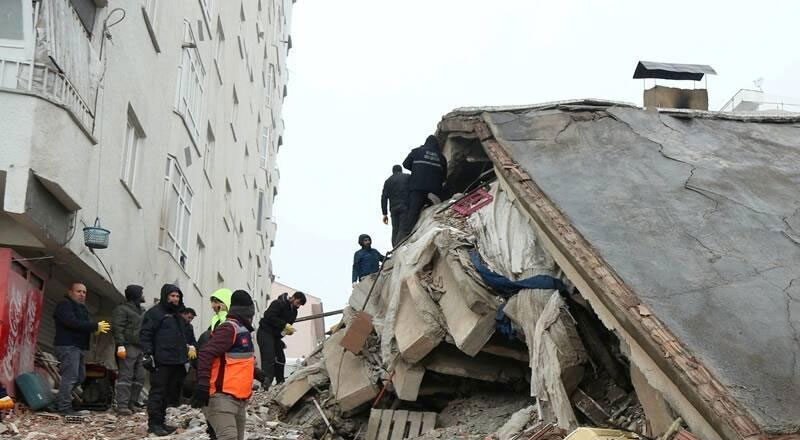The death toll crossed 4,000 on Tuesday as four earthquakes hit one after the other in Turkey and Syria since Monday. Thousands of buildings were also reduced to rubble.
The screams of people trapped within mountains of debris resounded across the night on Monday as the death toll in the earthquakes that hit Turkey and Syria crossed 4,000. The death toll in Syria mounted to 1,444 and at least 2,379 were killed in Turkey. An additional 14,483 people were injured even as rescue operations were underway to pull out more survivors from under the rubble.
Four quakes struck one after the other in Turkey and Syria, leaving thousands of collapsed buildings in its wake. A 5.9 magnitude earthquake struck the central Turkey region on Tuesday. More than 5,600 buildings were destroyed in Turkey alone and around 224 more in northwestern Syria.
Rescue operations were hindered by cold temperatures, worsening the conditions for people trapped under rubble or left homeless.
Here are the top developments:
-
The earthquakes in Turkey and Syria have killed more than 4,000 people even as rescue workers continue battling against the rain and the cold to pull out survivors from under the rubble. Around 14,483 people were injured in Turkey and 3,500 more in Syria.

The 7.8 magnitude earthquake struck southern Turkey, near the northern border of Syria early on February 6, which meant that sleeping people were trapped inside when their houses came crashing down. The tremors of the quake could be felt in several neighbouring countries.
The earthquake, which was followed by a series of aftershocks, was the biggest recorded worldwide by the US Geological Survey since a tremor in the remote South Atlantic in August 2021.
Thousands of officials, including search and rescue personnel, firefighters, medics and 3,500 soldiers, were working across 10 provinces in Turkey to unearth survivors from under the rubble. People were heard screaming even as the freezing winter weather hampered rescue efforts

-
In one instance, people used power saws on a collapsed building so that any survivors could either climb out or be rescued. Poor internet connections and damaged roads between some of the worst-hit cities in Turkey’s south also hindered the rescue efforts.
Turkey’s Disaster and Emergency Management Authority (AFAD) said Monday’s pre-dawn earthquake is one of the deadliest it has faced since the one in 1999 which killed more than 17,000 people.
Turkey also declared seven days of national mourning as death tolls are expected to rise.
-
Turkish President Tayyip Erdogan called the earthquake a historic disaster and said authorities were doing all they could. He added that 45 countries had offered to help the search and rescue efforts. This came after Turkish authorities sounded a “level 4 alarm” calling for international assistance.
India’s first batch of earthquake relief materials was dispatched to Turkey, along with NDRF search and rescue teams, specially trained dog squads, medical supplies, drilling machines and other necessary equipment.
-
US President Joe Biden conveyed his condolences to those affected by the deadly earthquake. The White House said it was sending search-and-rescue teams to support Turkey’s efforts.
Other countries which offered assistance include war-torn Ukraine, South-Korea and even Israel which has been in a state of war with Syria for decades, with periods of ceasefire.
-
The effects of the quake were even more destructive in Syria, a country destroyed by more than 11 years of civil war. The area affected by the quake is divided between government-controlled territory and the country’s last opposition-held enclave, which is surrounded by Russian-backed government forces.
Millions of refugees have also taken refuge in Turkey since the war started.
The White Helmets, an opposition emergency organization, released a statement saying hundreds of families remained trapped in rubble in the rebel-held enclave.
Medical centres were filled with injured people and some facilities had to be emptied to accommodate the quake victims. A top UN official said fuel shortages and the winter weather were also creating obstacles to its response.
— ENDS — -





